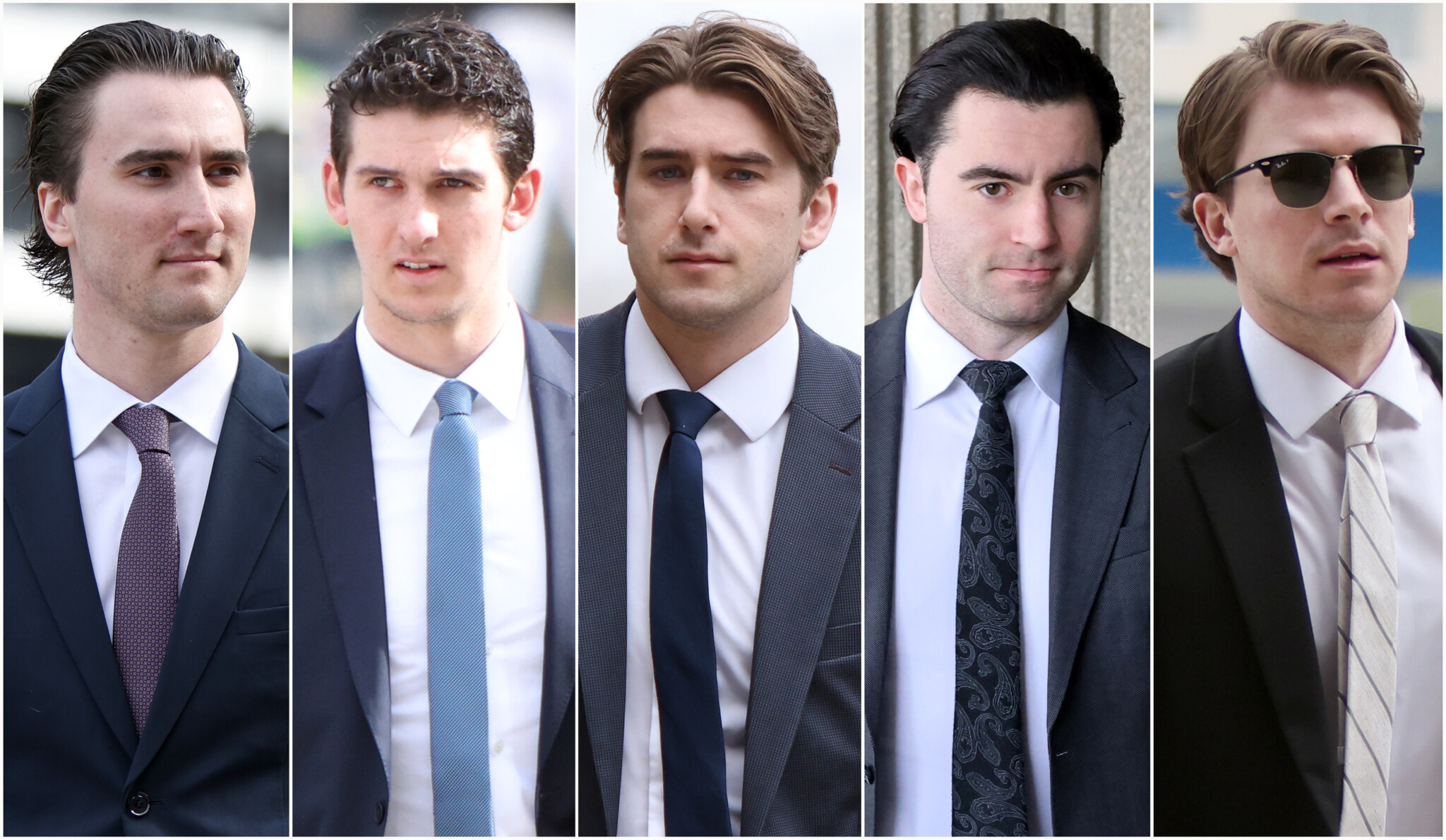There is a trauma response common among women that’s often misunderstood, even by those who’ve lived it. It’s called the “fawn” response: the instinct to appease, perform, or comply in moments of perceived threats. Unlike fight, flight, or freeze, fawning can look like consent. But it’s motivated by fear.
I’ve experienced it myself. In my early 20s, I was led away to a secluded spot on the beach from a concert while on holiday in Mexico by a physically imposing man I had just met on the dance floor. I went along, I said yes, I smiled. I didn’t want it. I feared what might happen if I refused. It took years to understand that fear can masquerade as agreement—and that, for many women, probably due to an evolutionary instinct, safety sometimes means complying.
This reality—that genuine fear can look indistinguishable from enthusiastic consent—is precisely what made the Hockey Canada case so morally complex. It forced us to grapple with uncomfortable truths about how trauma responses intersect with our legal system’s requirements for proof beyond a reasonable doubt.
The acquittal of all five former members of Canada’s 2018 World Juniors hockey team charged with sexual assault will feel uncomfortable to many, especially victims of sexual assault. The events described by all parties unearthed the dark underbelly of our national sport. The dynamics that emerged in court—E.M. being cross-examined by five sets of sharp defence lawyers—were uncomfortable to witness. But a criminal trial is not a symposium on sexual morality or trauma psychology. It is a process bound by the high threshold of the presumption of innocence. Today’s verdict reaffirms that principle.
The criminal law is a blunt tool that ultimately exerts the most severe liberty restriction the state can impose on individuals—incarceration. It must rely on tested evidence about what was said, done, believed, and reasonably inferred in the moment. And in the Hockey Canada trial, that evidence fell badly short of the burden of proof beyond a reasonable doubt.
The complainant, known as E.M., testified that she was too frightened and intimidated that evening in the London, Ontario, Delta Armories hotel to consent. After consensual sex with player Michael McLeod, up to eight of his World Juniors teammates filed in and out of the hotel room and engaged in various sexual acts with her. The Crown argued her participation was coerced by circumstance—that her consent was “vitiated” by fear, not freely given. But in law, those claims must be tested under cross-examination. And what emerged at trial was a far more ambiguous record than the criminal burden of proof requires.
The complainant was recorded twice that night—once without her knowledge—stating that the sexual activity was consensual and that she was sober. Specific sexual acts were discussed and agreed to verbally. She requested sex and even apparently taunted some of the players when they were reluctant. She was seen on surveillance walking steadily, unaided, as she left the hotel around 4 a.m. She later said on cross-examination that she was acting out a “porn star” persona to keep herself safe.
I believe E.M.’s account of her subjective experience: that she was intimidated and felt her safest option in a roomful of hockey players was to comply. Her description of adopting a performative persona as a survival mechanism resonates with what we know about trauma responses. But E.M.’s evidence as a whole was found by Justice Maria Carroccia to contain fundamental inconsistencies that undermined its reliability, casting a reasonable doubt on all of her claims and making across-the-board acquittals inevitable.
Justice Carroccia found that E.M. exaggerated her level of intoxication, filled gaps in her memory with assumptions, and blamed others for inconsistencies. Her testimony, the judge found, was shaped in part by hindsight and did not align with contemporaneous video, text, and witness evidence. In the result, Justice Carroccia ruled that E.M. gave actual consent not vitiated by fear and that her words, actions, and the surrounding circumstances supported this conclusion.

A composite image of five photographs show former members of Canada’s 2018 World Juniors hockey team, left to right, Alex Formenton, Cal Foote, Michael McLeod, Dillon Dube and Carter Hart as they individually arrived to court in London, Ont., Wednesday, April 30, 2025. Nicole Osborne/The Canadian Press.
Even if Carroccia had accepted E.M.’s evidence that she did not freely consent, an acquittal still was a virtual certainty on the evidence. The Crown was required to establish that the five accused could not have formed an “honest but mistaken belief in consent.” The defence of “honest but mistaken belief in communicated consent” requires two things: a belief that consent was communicated, and reasonable steps to ascertain that consent. That belief must not be reckless or wilfully blind. The law asks: Is there an air of reality to this defence?
In R. v. Ewanchuk, the Supreme Court was crystal clear: there is no such thing as implied consent to sexual activity. In that case, the complainant, a 17-year-old girl, said “no” repeatedly. She physically resisted. Her lack of consent was overt, but a lower court found that her failure to flee or scream could be read as implicit agreement. That decision was overturned, and rightfully so.
But this is not Ewanchuk. The question before the court was not whether she retrospectively regretted the encounter, but whether her words and conduct at the time could have led the accused to honestly, but mistakenly, believe she was consenting.
In this case, the answer was yes. The accused asked for consent and received it verbally. They discussed and agreed upon specific sexual acts with E.M. They recorded her saying she was “so sober” and had enjoyed herself. If these events didn’t create an air of reality regarding the complainant’s consent, it’s difficult to imagine what more could be required from adults engaging in intimate acts under the law.
None of this eliminates the broader discomfort many feel about the culture surrounding the events that night. Group sex with strangers, amplified by the hockey players’ status, male-female power dynamics, and alcohol, creates conditions ripe for exploitation and deserves social condemnation. The whole incident reflects troubling aspects of pornography culture and its impact on how young men and women relate to one another sexually.
But the criminal law is not a tool to enforce our moral aspirations or to remedy cultural problems. It is a shield to ensure that no person loses their liberty without clear proof of guilt beyond a reasonable doubt.
That principle matters even more in high-profile cases like this one—cases shaped not only by evidence, but by politics, media, and social pressure. It bears noting that police initially closed their investigation in 2019, citing doubts about the complainant’s intoxication levels based on video surveillance. Charges only materialized three years later, after TSN reported that Hockey Canada had quietly settled a civil lawsuit involving unnamed players. What followed was a media firestorm, sponsor withdrawals, and public demands for accountability.
While public pressure can sometimes serve justice by bringing attention to cases that might otherwise be ignored, the subsequent investigation raised concerns about procedural issues. Even the police’s reinterviews of several players were excluded from the trial after a judge found they had been compelled under threat of professional consequences. That erosion of proper process, however well-intentioned, undermines the integrity of our justice system.
The acquittals in this case are not a vindication of the conduct that occurred in the hotel room that night. They are a reminder that our legal system, however imperfect, requires proof beyond a reasonable doubt before it will deprive someone of their liberty. If this case pushes us toward a national conversation about the nature of freely given consent and power dynamics in sexual encounters, all the better. But it cannot justify lowering the bar of criminal proof.









